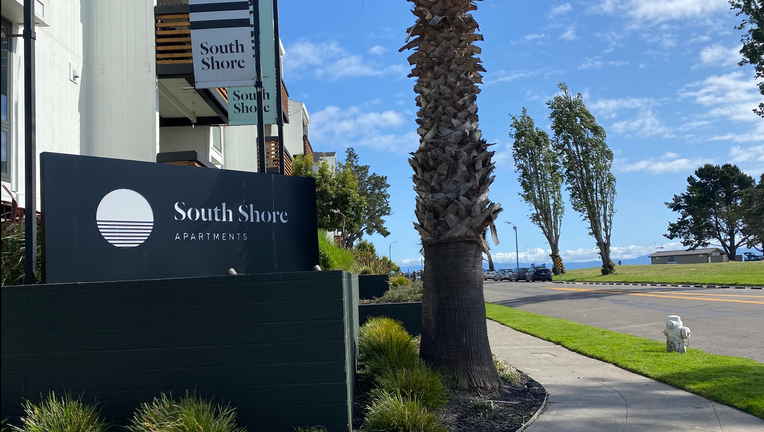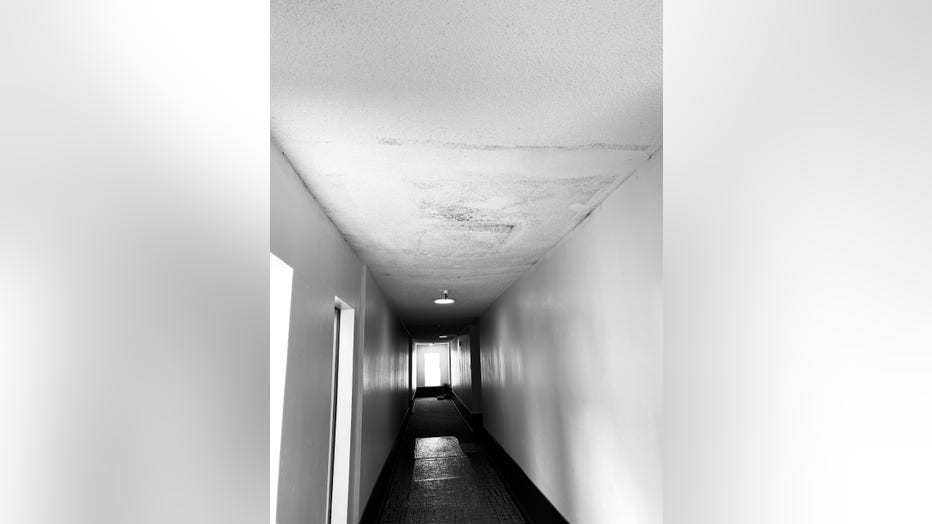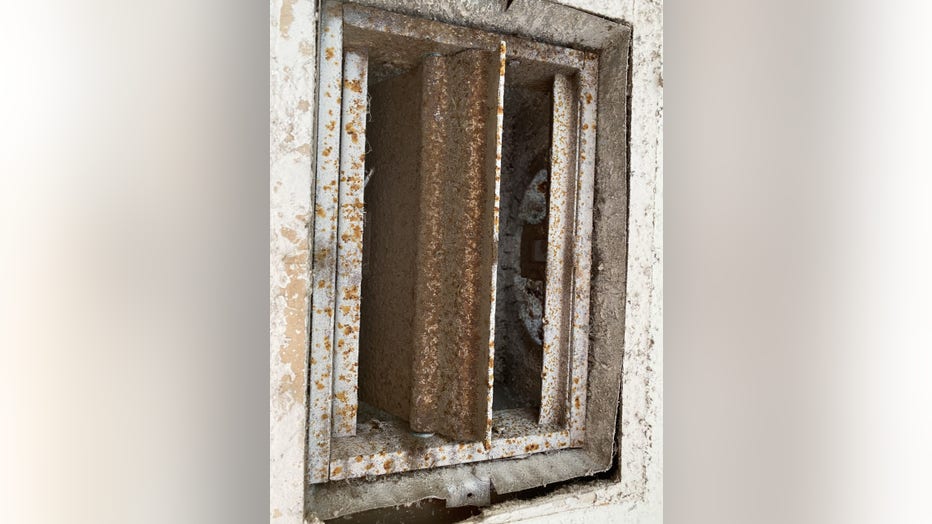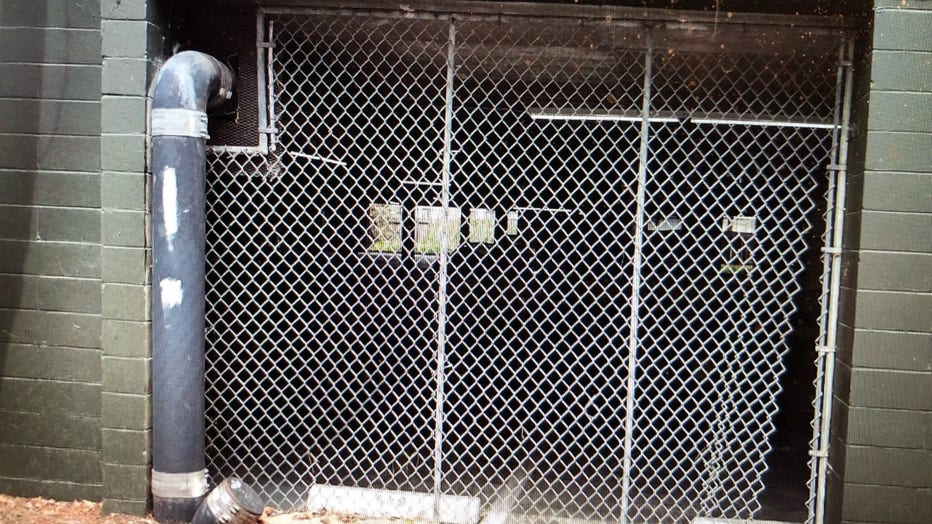Little-known law allows Alameda landlord to charge tenants for construction, tenants are furious

South Shore Apartments in Alameda filed over $24 million in construction costs for a Capital Improvement Plan and are trying to pass on some of those costs to its tenants using a little known law.
ALAMEDA, Calif. - Renters at one of the city of Alameda’s largest apartment complexes are in an uproar over a potential rent increase due to a little-known law that allows landlords to pass the costs of improvements onto their tenants.
South Shore Apartments, a 451-unit complex owned by a Texas-based company, filed in October 2022 with Alameda city officials to recoup over $24.4 million from tenants over a 15-year period for construction costs. The total cost passed on to the tenants would be an increase of $300 a month.
Some residents say the rent increases are exorbitant and unfair, especially because their landlord is an out-of-state corporation called Alameda Multifamily Owner LLC and not a small business owner. Over 200 South Shore tenants have signed a petition asking Alameda City Council to block the increase from going through. However, Alameda city officials said their hands are essentially tied and that the South Shore residents may be on the hook for the rent increase, although a final decision has yet to be issued.
"The lack of clarity around how this ‘pass through’ can be applied now and in the future and without any sort of percentage increase cap, has been mind-boggling," Tamika Bowman, a South Shore tenant said. "New paint and updated tennis courts are nice, but when my neighbors are still dealing with long-time mold issues and their children are suffering from asthma due to long exposure, it just doesn't sound right."
The rent increase, known as a "pass-through," is applied to the total number of units, not just the number of tenants – meaning that if there are empty units, the landlord can’t pass that charge onto the other renters – and only applies to the tenants who occupied the building before Feb. 28, 2022. The rent spikes would be subject to the state and local caps on rent increases at no more than 10%.
Landlords can only impose pass-throughs if a capital improvement plan, or CIP, falls under certain categories. Cosmetic work is ineligible. The qualifying improvements include repair or new construction on roofs, seismic retrofits for foundations, new plumbing and electrical work, water conservation projects, exterior painting, fixing termite damage and a few other improvement areas that are key to improving the longevity of the building.
Tamika Bowman, a tenant at South Shore Apartments, speaks with KTVU
Tamika Bowman, a tenant at South Shore Apartments in Alameda, tells KTVU why she opposes the rent increase she and other residents may be facing due to a little-known law that allows landlords to charge tenants for construction costs.
Other rent-controlled cities in the Bay Area have similar capital improvement plans, including San Francisco and Oakland. But those cities cap the amount of costs passed on to the tenants at 50% of the construction cost. Alameda allows landlords to pass on 100% of the construction to tenants.
Alameda’s CIP passed in 2016 with the intent to improve the quality of the city’s housing stock and to prevent homes from becoming decrepit and condemned. To date, Alameda city officials have only approved one CIP on a three-unit building.
The South Shore tenants are urging city staff to deny the CIP, however staff cannot simply deny a capital improvement plan based on community pushback. They must follow the law and approve projects that meet the criteria, said Bill Chapin, Alameda’s Rent Program director who oversees the CIP applications.
"This application from South Shore is unlike anything that we've received to date," Chapin said during a recent informational presentation conducted by city staff. "In terms of the size of the property, there's been nothing that we've received for more than seven units for the qualifying [projects] that have been filed."
The South Shore owners filed over 800 pages with city staff detailing the work they conducted on the property and notified their tenants of the potential rent increase in October 2022. After reviewing the application, city staff dwindled the amount that can be passed on to the tenants to $20.5 million, which comes out to a rent increase of $168.97 for a two-bedroom unit. The rent increase cannot be attached to an existing long-term lease, and the landlord must give the tenants 30 days notice before the increase would go into effect.
Renters do have a remedy, they can elect to not accept the increase and move out, at which point the landlord may have to pay the tenant for relocation costs.
The point of contention for many South Shore renters is not just the rent increase, but the quality of work done and the precedent it may set. During the informational sessions renters questioned if the work was even done or if city staff inspected the work. City staff said all improvements received permits from the city and were inspected.

Mold in the third floor B Building at the South Shore Apartments
However, photos obtained by KTVU show mold and water damage on the third-floor ceiling of the B Building, mold and rust on hallway vents and other questionable work.

Rust and mold on a vent in a hallway at South Shore Apartments.
One South Shore renter who spoke at the informational meeting said she has lived at South Shore for 11 years and has dealt with eight different property managers, which makes getting problems addressed a major burden.
"What's happening is these landlords have a history of deferred maintenance and code violations," she said.

"One of the fences to the garages that has been open for quite some time, leading to break-ins and robberies etc.," residents of South Shore Apartments told KTVU.
Other Alamedans are concerned about the precedent that may be set if the CIP is approved.
"We're concerned that this will set a precedent, especially with corporate landlords," said Laura Woodard with the Alameda Renters Coalition. "[They’ll] see that these very large applications are getting approved and that they are going to be allowed to charge the tenants for these improvements, and the tenants have no say."
If the CIP is approved, the South Shore tenants may challenge the approval and bring forth evidence of shoddy work. They may also petition the Rent Program for enforced rent reductions based on quality of living issues, such as mold, the director said.
South Shore Apartments management did not respond to a request for comment ahead of publication time.
The tenants have won a slight victory in their battle so far, the City Council is considering a moratorium on CIPs for complexes with over 25 units at its May 11 meeting. The South Shore tenants want that moratorium potentially extended to their situation, but city staff may have their hands tied. A final decision is expected after the May 11 City Council meeting.
Alameda Mayor Marilyn Ezzy Ashcraft declined to comment on details of the CIP ahead of this week's meeting.
Yibin Shen, Alameda’s city attorney, said the city could potentially face legal issues if a moratorium is placed on South Shore because the existing law currently in place applies to South Shore’s current CIP.
However, at the end of the day, the South Shore tenants and their allies just want Alamedans in their homes.
"We’re really concerned about the impact a Capital Improvement [Plan] like this, a $24 million plan being pushed through, [can have] on all of Alameda," Bowman told KTVU outside of Alameda City Hall. "A big corporate landlord from out of state can come in and change the landscape of a neighborhood, if it can happen at South Shore, it can happen anywhere in Alameda."

